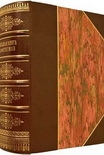The Best of World SF by Lavie Tidhar (best romance novels of all time TXT) 📗

- Author: Lavie Tidhar
Book online «The Best of World SF by Lavie Tidhar (best romance novels of all time TXT) 📗». Author Lavie Tidhar
The Wheel of Samsara
Han Song
China
I have a personal reason to include this story here. Back when I was putting together The Apex Book of World SF, in 2008, I received ‘The Wheel of Samsara’ from Song, who I met in China back in 2000. He is one of the most highly-respected SF authors in China, and this story, which I first published in 2009, was his first story in English. Song translated the story himself, and I had the privilege of working with him on the translation for publication. I got to meet him again in London briefly, and then in Beijing twenty years after our first meeting. ‘The Wheel of Samsara’, which corresponds with Arthur C. Clarke’s classic ‘The Nine Billion Names of God’, is the only story from my previous five World SF anthologies I have chosen to reprint here. I like to think that, in some small way, it was a lonely sparrow to herald the spring of Chinese SF in translation. It is also, of course, a very good story, and I am very proud to have published it first.
She travelled in Tibet and one day arrived at Doji lamasery. It was a small temple of Tibetan Buddhism now in a bleak, half-ruined state. What caught her eye was a string of bronze wheels hung around the wall of the temple. They were called the Wheels of Samsara.
There was a total of one hundred and eight wheels, moving in the wind; they symbolized the eternal cycle of life and death – of everything. She quickly noticed that one of them was a strange colour of dark green, singling itself out from the others, which were yellow.
It was the thirty-sixth wheel when counted clockwise.
She touched the wheels one by one, and made a vow to Sakyamuni, the Great Buddha. Midway through a sudden gale began to blow and a heavy mist fell. She was scared and she ran back to the temple.
She stayed in the lamasery that night.
The gale continued and became a rainstorm. Thunder and flashes of lightning were splitting the mountains and the sky.
She could not fall asleep on such a night, and at midnight she thought she could hear the sob of the Tibetan plateau, which reminded her of her dead mother and her lonely father on Mars.
Suddenly, she heard a cry.
It was a miserable sound, weak as a hairspring and harsh as a woman’s weeping, and it made her think of a ghost.
Fear stopped her own cry.
Though she knew lamas were sleeping in the next room, she didn’t dare to go out or shout for help.
Wind and rain died out the next day and it became sunny. She told the lamas what she had heard the previous night.
They grinned, telling her it was not a ghost. ‘It was the howl of the Wheel of Samsara,’ they said.
The howl of the Wheel of Samsara? She was surprised.
The lamas explained that it was one of the wheels. To be exact, it was the thirty-sixth clockwise.
According to the lamas, Doji lamasery had been destroyed several times in the past five hundred years. Each time, the wheels were lost, but only the thirty-sixth one had been well-preserved to date.
Though it disappeared in a number of landslides and floods, it was finally re-discovered.
When gales and rain approached, it gave out unexplainable sounds.
So she looked at it carefully, but it simply kept silent. She touched it with her forefinger, and it emitted a sense of bleak dread, which flooded directly into her heart.
It was hard to imagine that it was the wheel that cried the previous night.
‘It was a wheel of soul,’ a lama murmured.
The lama’s face was dark, his expression cryptic.
So it was an unusual wheel which had encountered so much rain, so many winds, but now it had to join such a string of ordinary wheels. Realizing the fact, she could not hold back her tears.
*
She returned to Mars and told her father about her finding in Tibet.
Father laughed and said, ‘Could that be called strange? The phenomenon was simply caused by static electricity on that remote blue planet.’
Her father, a scientist, knew a lot of cases like that.
For instance, some valleys would emit the sounds of horses and dead soldiers in rainstorms, and some lakes would play music in the evenings. Documents even recorded a bronze bell in an ancient temple that could ring without anybody striking it.
‘Once the air accumulates too much static electricity, it would trigger the strange sounds. All this can happen at any moment on Earth. Never be scared, my daughter.’
She felt relieved, but also dull, and lost. Father’s explanation expelled her fear, but also cheated her of the mystery she craved.
In her mind: there should be some sort of ghost in Tibet, who would frighten her, perhaps, but wouldn’t disappoint her.
She went back to her own room and shut the door. Without any reason, she was out of sorts. She turned a cold shoulder to her father when he called her to dinner.
The next year she went to Tibet again and made her way directly to Doji lamasery.
‘You came for the wheel, right?’ the lamas said, grinning, and winked their pearl-like eyes which could see through everything.
She felt a little timid, and told them about the static electricity theory.
However, she was afraid that they would be unhappy with the explanation.
So she added, ‘That was just my father’s view.’
The lamas did not feel unhappy. They smiled. ‘Last time you stayed here





Comments (0)